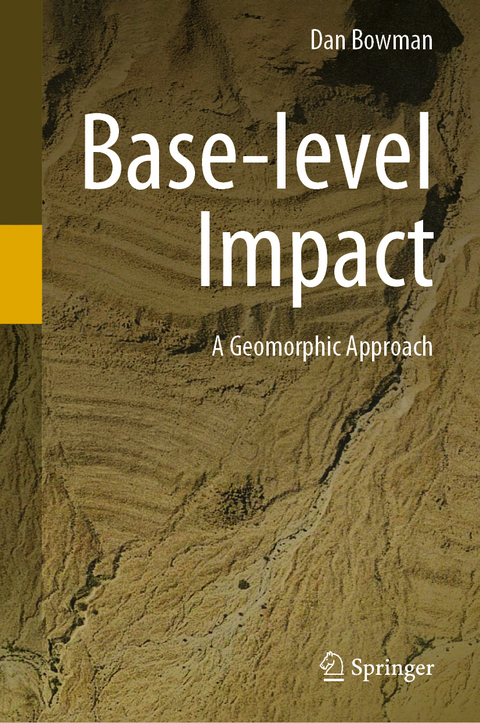
Base-level Impact
Springer International Publishing (Verlag)
978-3-031-24993-8 (ISBN)
Much of the final shaping of the global landscape is accomplished by incision of river networks. The base-level is a principle determinate controlling the global relief by processes of erosion and aggradation. In the populated world, entrenchments triggered by base-level changes may become devastating events, damaging agricultural lands, undercutting bridges and destroying roads.
The aim of this book, as a chapter in fluviomorphology, is to present the base-level control when active in the continental interior, unrelated to marine base-level fluctuations along the continental margins nor to sequence stratigraphic tract models in Exxon sequence stratigraphic sense. The focus is on the morphology and the gross trends of the processes controlling channel evolution through transient signals initiated by base-level changes and communicated upstream through the drainage network.
The book brings together principles and conclusions gained by field work, by laboratory studies and by models, based on the widely scattered literature. The chapters include presentation of different types of base-levels, discussing the constraints of their altitude, the degradation and aggradation responses, the temporal and spatial trends along the channel network, the controlling factors, the knickpoint transient retreat process and its rates. Special emphasis is given to the Dead Sea Rift following its extreme base-level conditions which make it a unique field laboratory.
This book is relevant to students in earth sciences as well as to planners, hydrologists and engineers dealing with geomorphology and surface drainage.
Dan Bowman is Professor Emeritus at the Ben-Gurion University of the Negev, Beer-Sheva, Israel. He got his Ph.D. in Geomorphology at the Hebrew University. His publications include morphology of sandy coasts, nearshore circulation, tectonic morphology and alluvial fans morphology. His main areas of research included the Israeli Mediterranean Coast, the Dead Sea Rift, Italian Coasts and the Tien-Shan Ridge in Kyrgyzstan, Central Asia. Prof Bowman taught courses in nearshore circulation, coastal morphology, alluvial fans, tectonic morphology and system approach. In 2019, Springer published his book Principles of alluvial fan morphology.
Introduction.- Definitions and location.- Constrains of the base-level altitude.- Main spatial and temporal trends.- Degradation.- Aggradation.- The channel profile.- Controlling factors.- Knickpoints and Knickzones.- Knickpoint retreat as a transient response.- Knickpoint evolution.- Rates.- The Messinian base-level fall.- Morphological products.- Additional adjustments to base-level changes.- The equilibrium test.- Tributary junctions.- The regional approach: The Dead Sea area as a field laboratory.
| Erscheinungsdatum | 13.05.2023 |
|---|---|
| Zusatzinfo | XV, 154 p. 74 illus., 19 illus. in color. |
| Verlagsort | Cham |
| Sprache | englisch |
| Maße | 155 x 235 mm |
| Gewicht | 414 g |
| Themenwelt | Naturwissenschaften ► Geowissenschaften ► Geologie |
| Schlagworte | Base-level impact • Dead Sea rift • fluvial geomorphology • fluviomorphology • laboratory studies |
| ISBN-10 | 3-031-24993-3 / 3031249933 |
| ISBN-13 | 978-3-031-24993-8 / 9783031249938 |
| Zustand | Neuware |
| Informationen gemäß Produktsicherheitsverordnung (GPSR) | |
| Haben Sie eine Frage zum Produkt? |
aus dem Bereich


